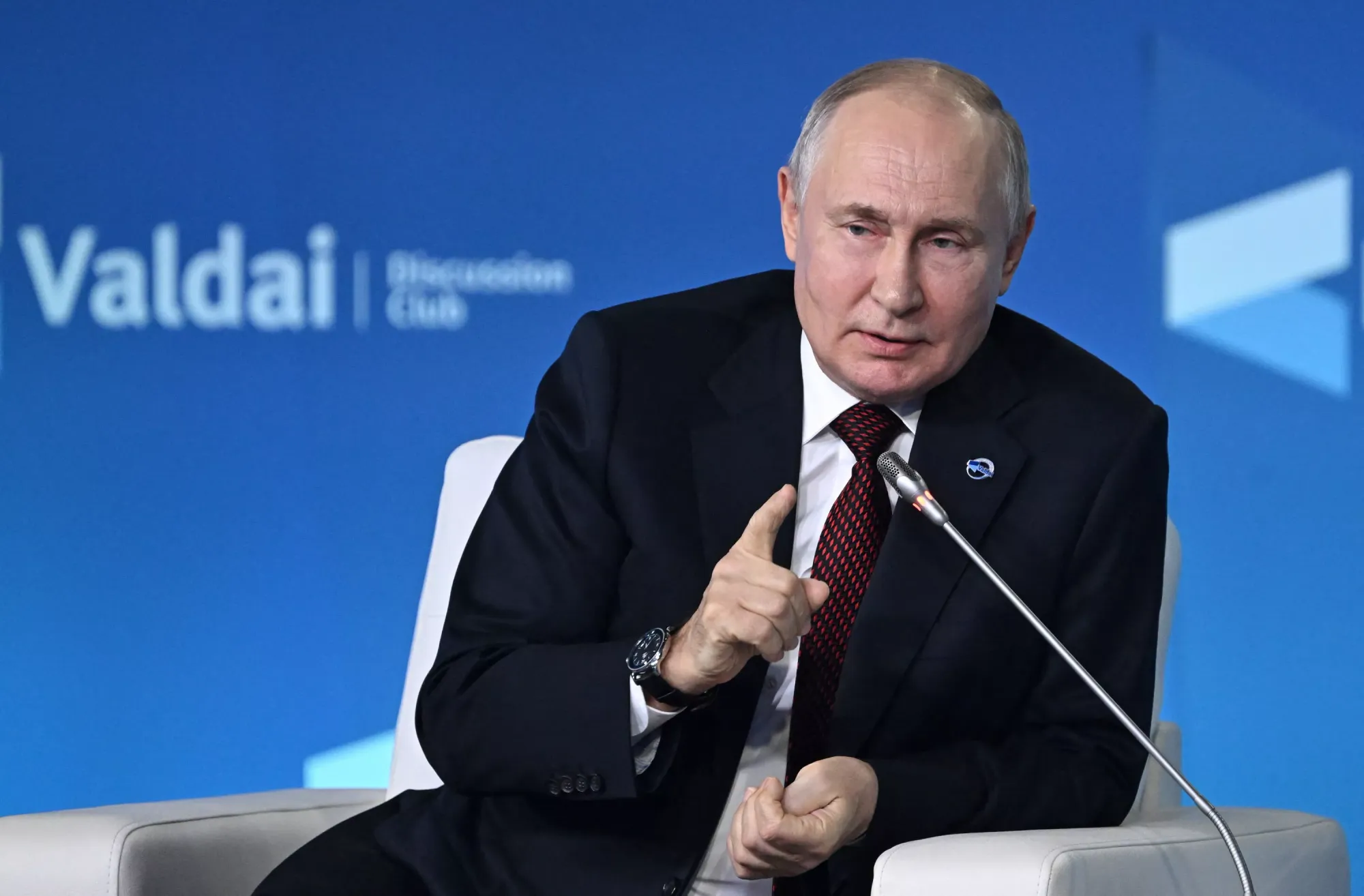Putin Asserts Russia's Nuclear Stance Amid Ukraine Conflict
In his recent address at the Valdai forum, Russian President Vladimir Putin intensified warnings to the West, hinting at a potential withdrawal from the 1996 Comprehensive Nuclear-Test-Ban Treaty (CTBT). Vladimir Putin's annual speech at the Valdai forum, a gathering closely associated with the Russian presidential administration, was meticulously

In his recent address at the Valdai forum, Russian President Vladimir Putin intensified warnings to the West, hinting at a potential withdrawal from the 1996 Comprehensive Nuclear-Test-Ban Treaty (CTBT).
Vladimir Putin's annual speech at the Valdai forum, a gathering closely associated with the Russian presidential administration, was meticulously orchestrated. One of the few permitted questions was posed by Sergei Karaganov, a prominent figure in Moscow's international relations and a leading voice advocating for a lowered threshold on the use of nuclear weapons. He asked Putin whether Russia should modify its nuclear usage doctrine. In response, the Russian president confidently asserted that no sane country with a clear memory would contemplate a nuclear strike against Russia.
He elaborated that any nuclear attack on Russia would instantly trigger a retaliation involving hundreds of nuclear missiles, ensuring the attacker's annihilation. Putin further underscored Russia's advanced missile capabilities by revealing a recent test of the Bourevestnik, a nuclear cruise missile that boasts an "unmatched" design and "unlimited" range.
Shifting to the topic of nuclear testing, Putin provocatively suggested that Russia might exit the CTBT—a treaty that the nation signed and ratified. By contrast, China and the United States have not ratified the agreement. He remarked, "Theoretically, we could behave like the United States," hinting at the possibility of nuclear tests. The last nuclear test by Russia was conducted in 1990, whereas the U.S. conducted its most recent one in 1992. Experts believe that a resumption of such tests could have destabilizing implications on global security.
Amidst escalating tensions, Margarita Simonian, the head of Russia Today, controversially proposed detonating a nuclear bomb over Siberia to convey Russia's dwindling patience to the West.
These nuclear-themed discussions and declarations emerge at a critical juncture, with the Russian presidential elections on the horizon in March. As speculation grows regarding Putin's intentions for the upcoming election, his nuclear rhetoric serves a dual purpose: portraying the U.S. as the antagonist while bolstering his domestic appeal.
The evolving dynamics indicate that while nuclear weapons remain a potent tool in global geopolitics, they are equally influential in domestic politics, with leaders leveraging them to cement their positions both internationally and at home.




